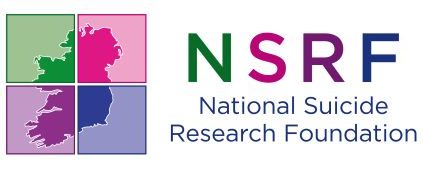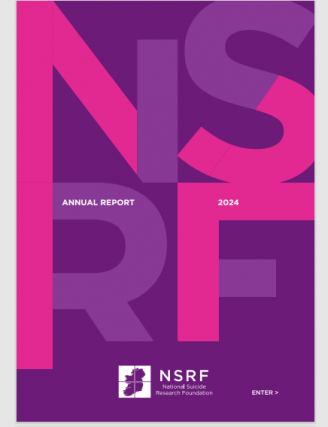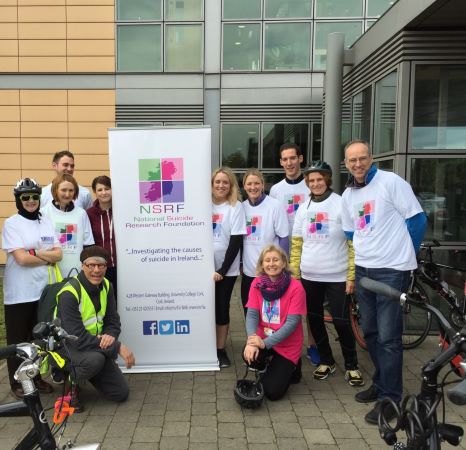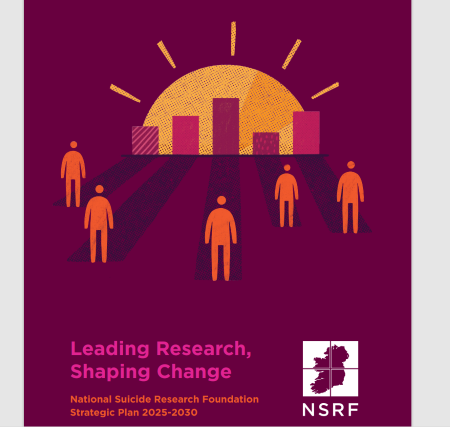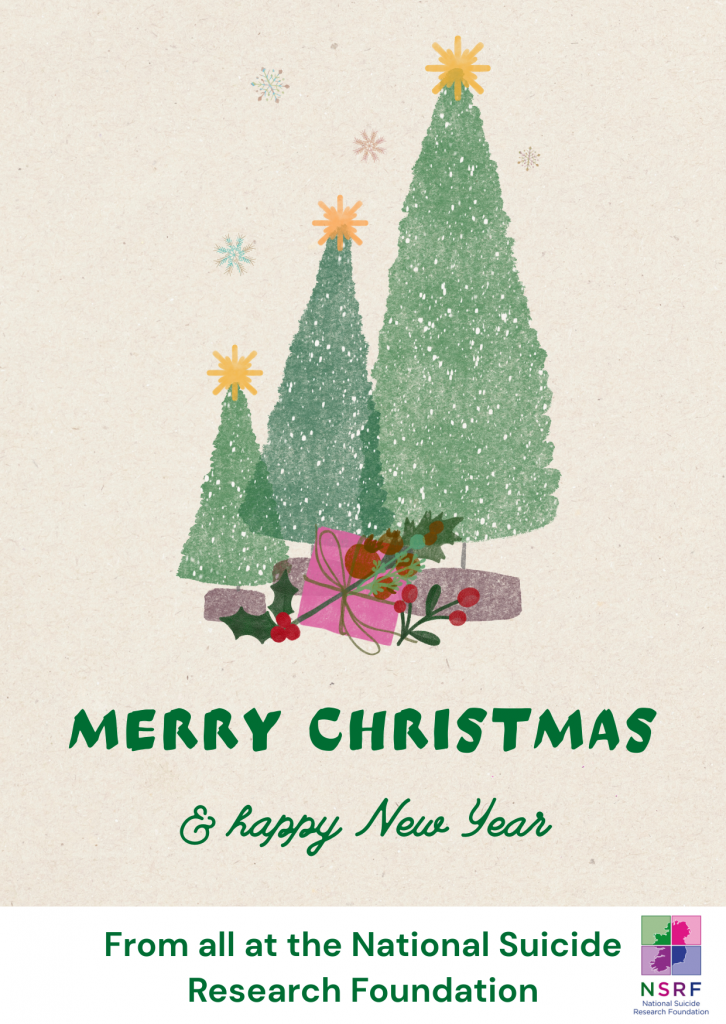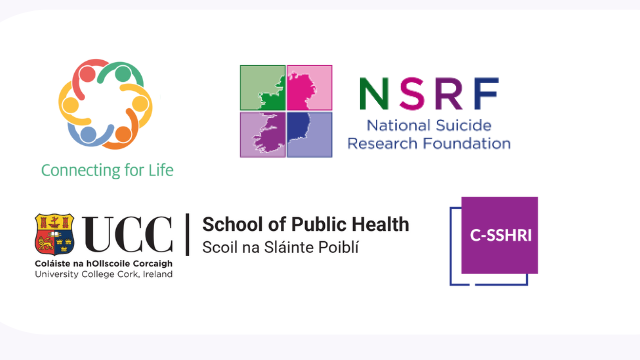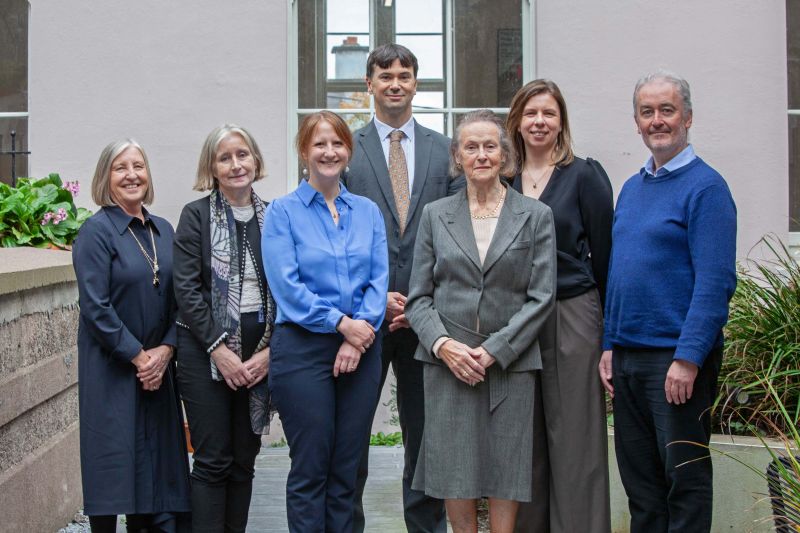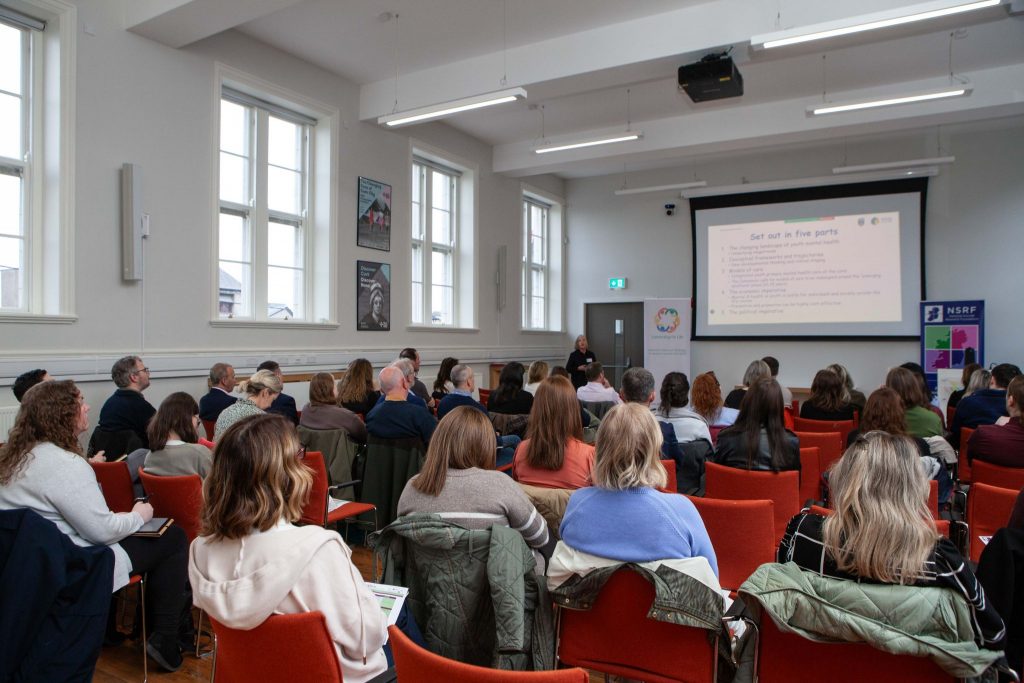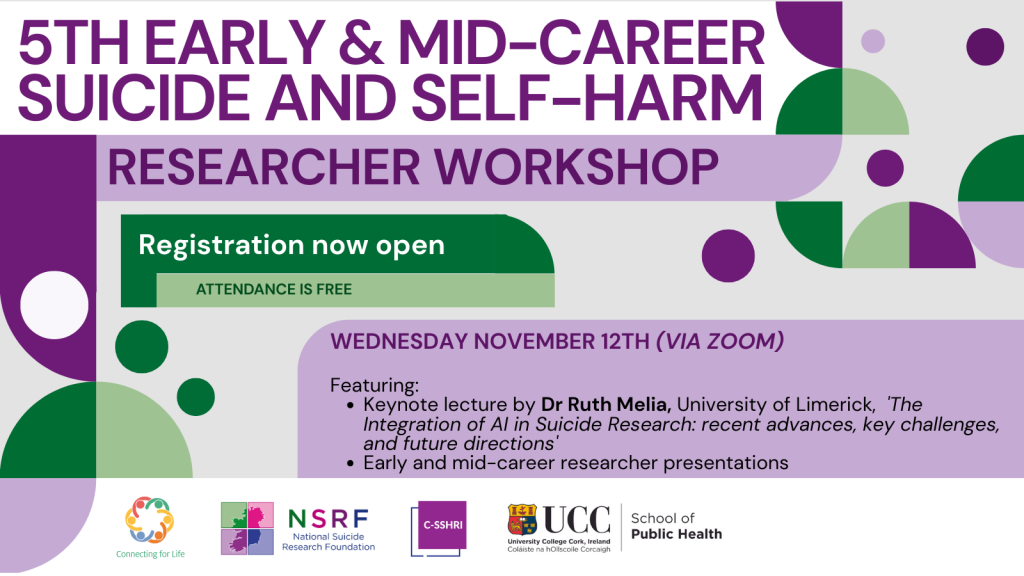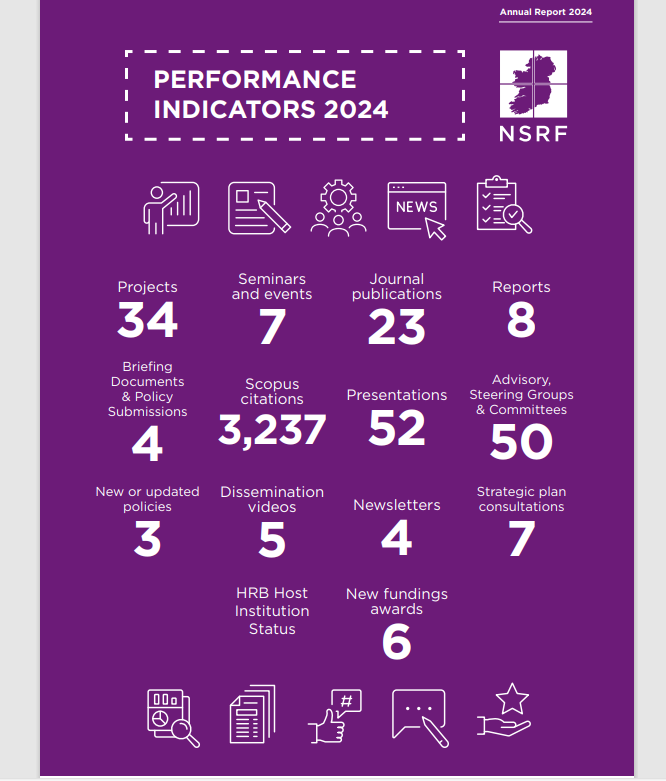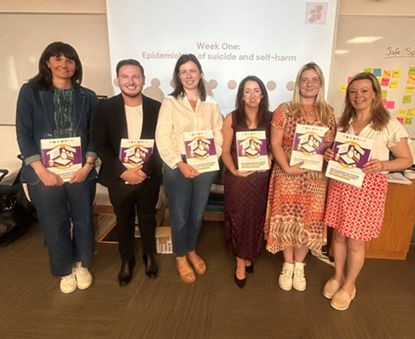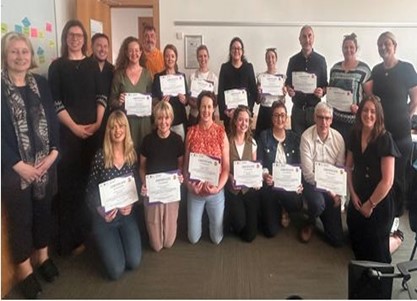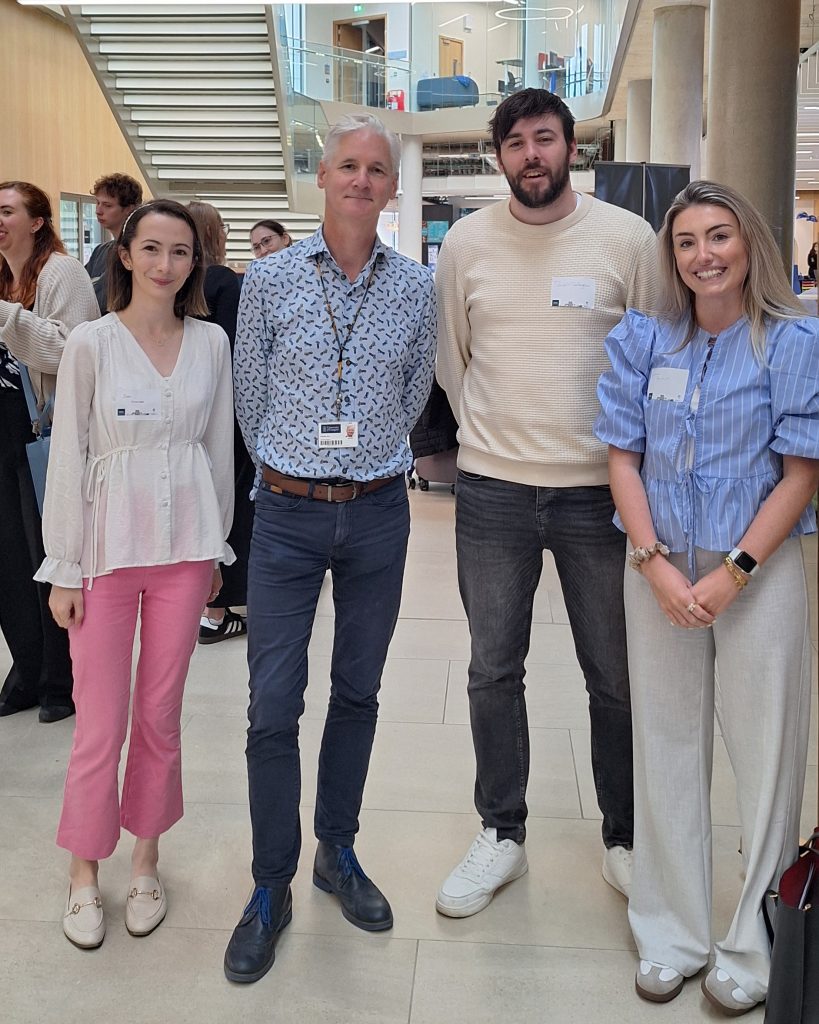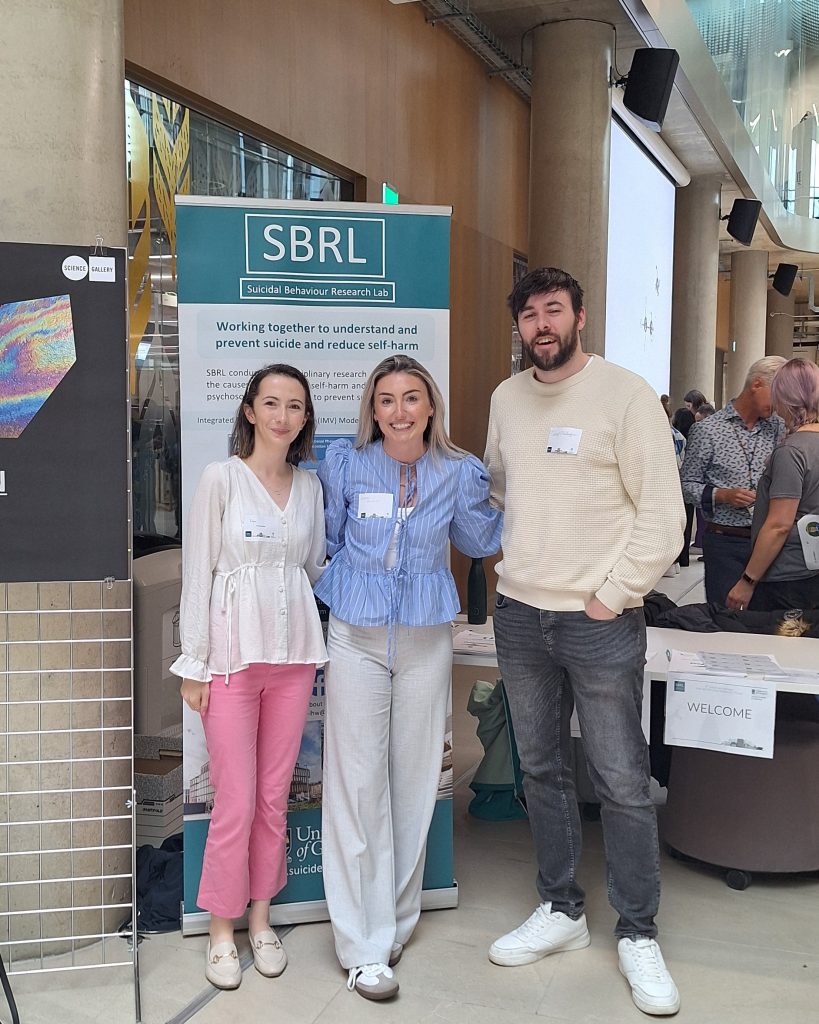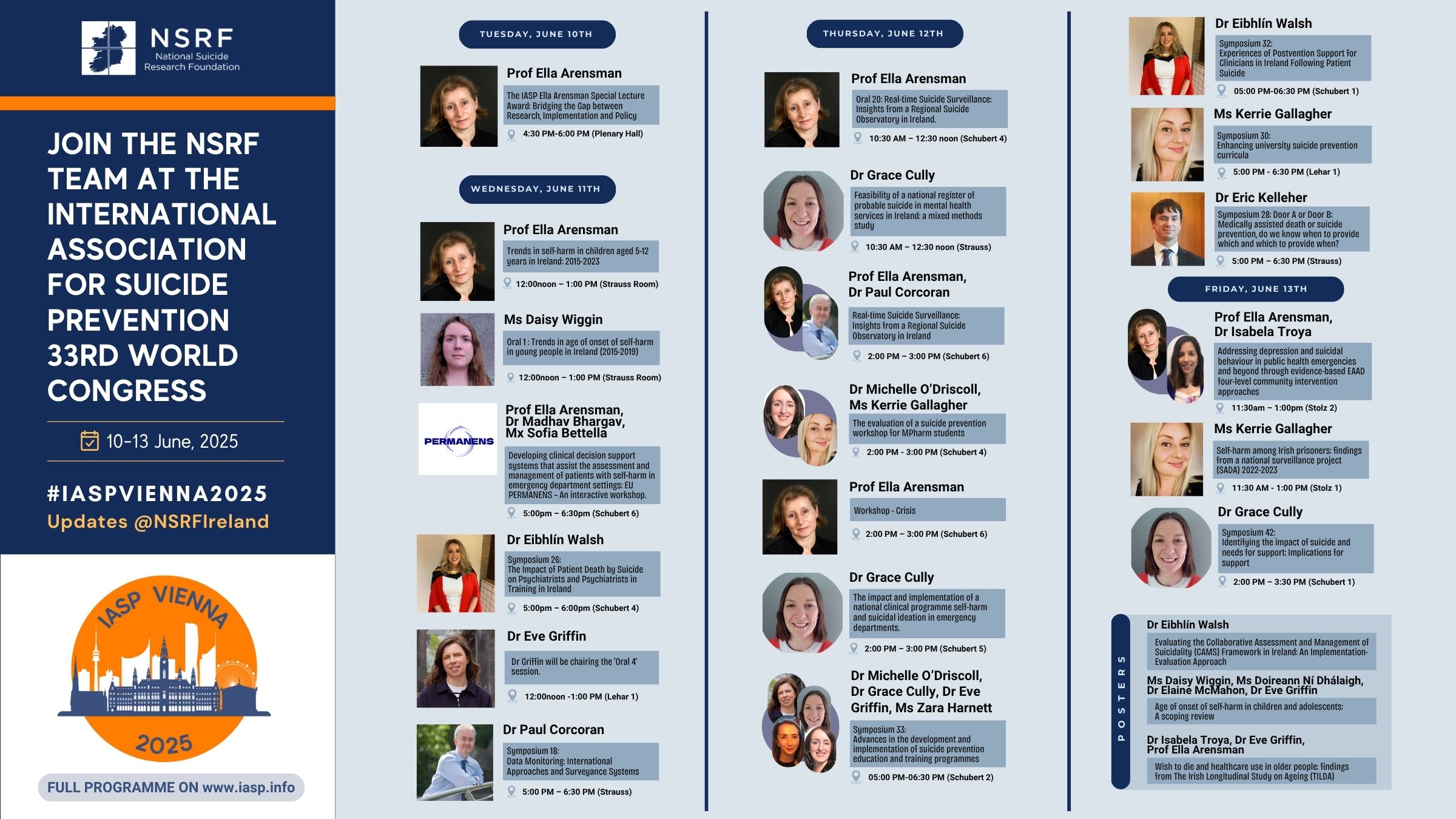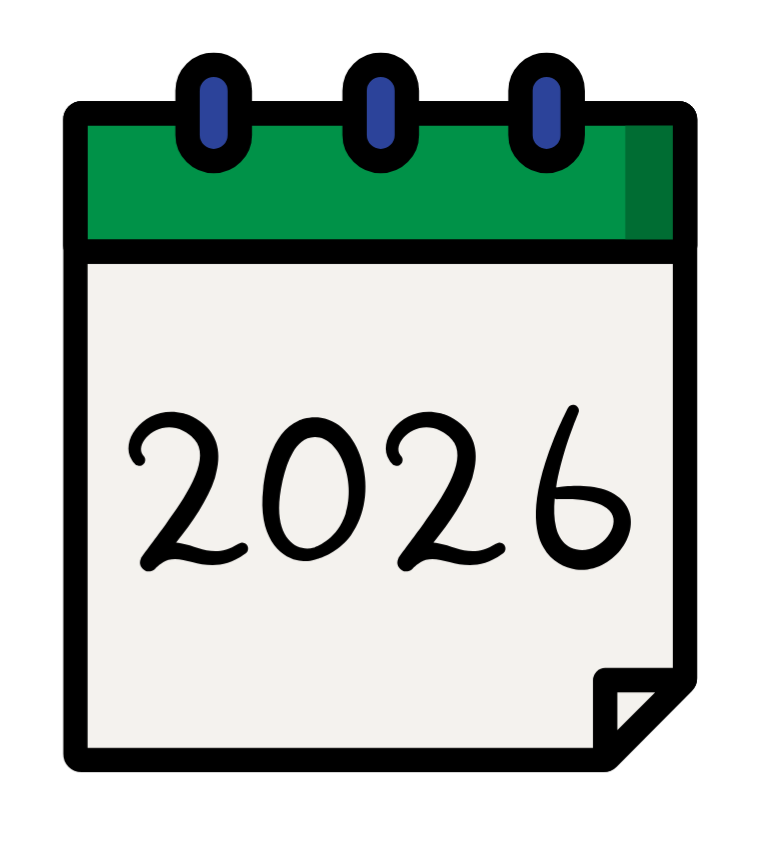
As we step into a brand-new year, we reflect on what 2026 may bring for the NSRF.
Guided by our Vision and Mission, we continue our work with integrity, compassion, inclusivity and excellence.
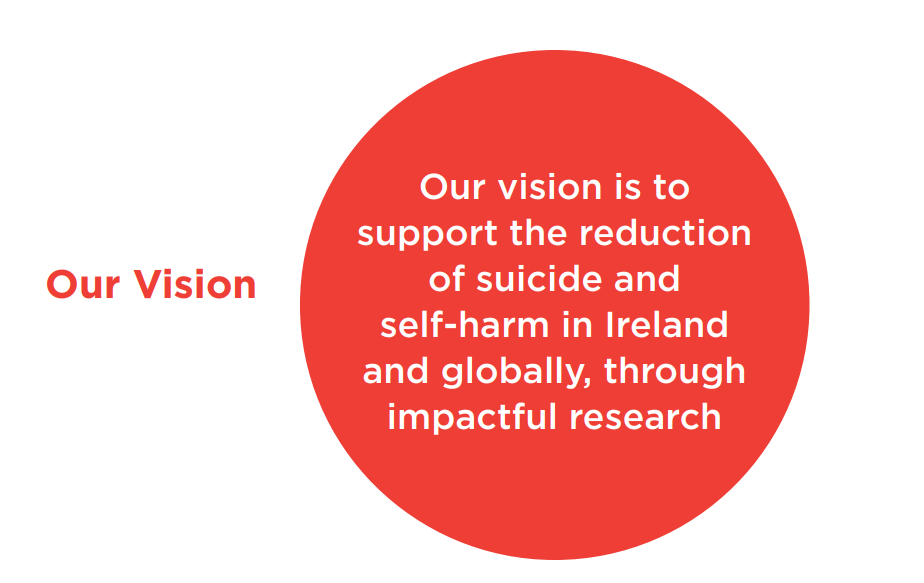
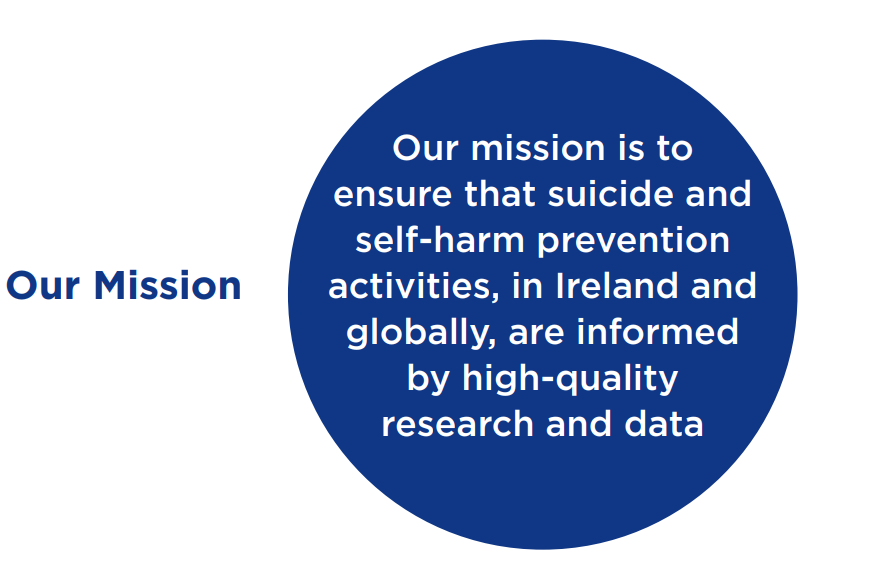
Several of our ongoing projects will remain at the heart of our work: the National Self-Harm Registry Ireland, PROSPERH, PERMANENS, SAMAGH to name a few, as well as collaborations with Exhange House Ireland and the Irish Prision Service. A full list of our research projects is detailed here: Strategic Research Clusters – National Suicide Research Foundation.
We remain a WHO Collaborating Centre for Surveillance and Research in Suicide Prevention for 2026, and look forward to continuing this collaboration by providing technical advice to inform WHO’s work in establishing surveillance systems of self-harm and suicide, as well as in implementing and evaluating national suicide prevention programmes.
We welcome two new staff members this month: Dr Elizabeth Bodunde and Dr Andrea Sinesi. Elizabeth is a post-doctoral researcher working on the Irish Defence Force project, which is examining the incidence of suicide among members of the Irish Defence Forces, and aims to identify if there is an increased risk of suicide among this population. Andrea is a Senior Researcher and will be working primarily on the Horizon EU-funded, Promoting Positive Mental and Physical Health at Work in a Changing Environment (PROSPERH) project.
Our Upcoming Events page will be updated regularly with details of our research events such as Seminars, Webinars and trainings.
Our LinkedIn page is also a good place to stay informed of our research findings, new projects and events.
We appreciate you being here, and your continued support of our work. For any queries you can email infonsrf@ucc.ie.
